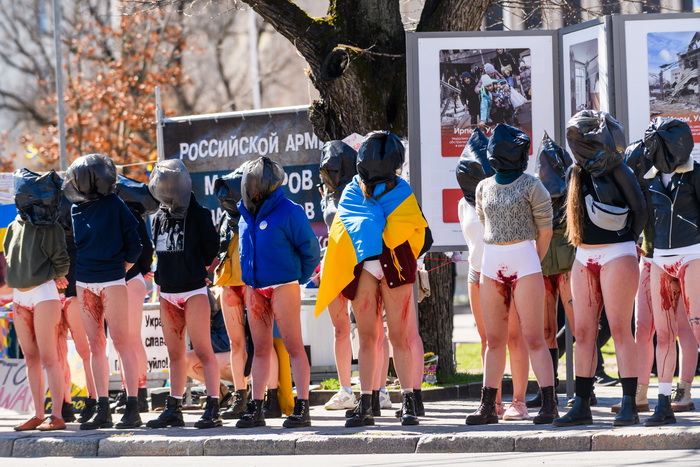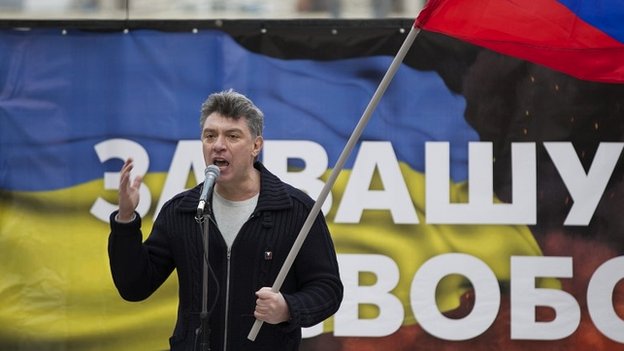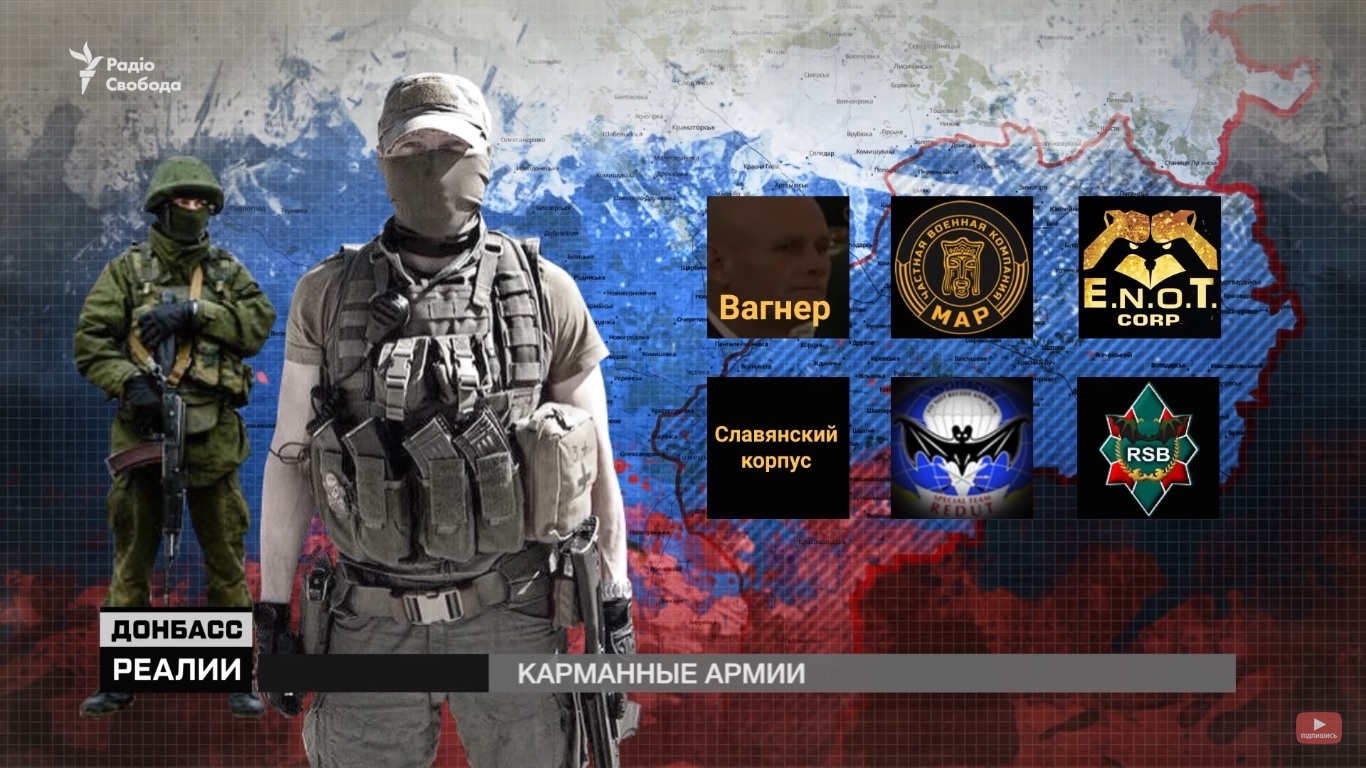In a resolution passed on Thursday, 5 May, in Strasbourg, the European Parliament condemned the use of rape by Russian soldiers as a deliberate tactic in the country’s war on Ukraine. Entitled ‘The Impact Of The War Against Ukraine On Women’ (2022/2633(RSP), the resolution cites the
“increasing number of…intelligence reports about sexual violence in the conflict” and testifies “that rape, sexual harassment, torture, mass executions and genocide are being increasingly used by the Russian army as weapons of war against the civilian population in Ukraine.”
Citing the Treaty of the European Union, the Charter of Fundamental Rights of the European Union, the Rome Statute of the International Criminal Court, the Geneva Conventions, the UN Declaration on the Elimination of Violence against Women, and multiple other international conventions and directives, the resolution calls for bloc-wide EU integrated coordination in the fight against, and prosecution of, crimes of sexual violence being committed in Ukraine. Asserting also that “Member States have a legal obligation to ensure the protection of refugees under international and EU law,” the resolution insists that EU nations “need to step up their efforts,” in order to support Ukrainian women fleeing the war zone. Additionally, the resolution also emphasizes
its condemnation in the strongest possible terms of the Russian Federation’s illegal, unprovoked and unjustified military aggression against and invasion of Ukraine and condemns any war crimes being committed against the civilian population, including women and girls…[and] reiterates its calls for the EU institutions to work towards swiftly granting EU candidate status to Ukraine… in order to adequately protect Ukrainian women and girls.
The day before the passage of the resolution, in a co-signed letter published in The Brussels Times, Soraya Rodríguez Ramos—a member of the European Parliament’s Committee on Women’s Rights and Gender Equality (FEMM) and shadow rapporteur on the resolution—called for Europe to directly confront the abuses being committed in Ukraine. “Faced with these horrors,” she wrote, “the EU cannot be a silent bystander. We have a moral responsibility towards the women and girls of Ukraine.”
Russian Atrocities
Even prior to the Russian invasion in late February, the menace of assault on female bodily autonomy was verbalized clearly by the Federation’s leader. Earlier in the month, during a press conference with President Emmanuel Macron, Vladimir Putin cited the Minsk agreement and stated that Ukraine must accept the arrangement: “Like it or don’t like it, it’s your duty, my beauty.” For many, the sinister undertones of sexual violence were pointed. As CNN reported, the remark was a “reminder of a strain of unrepentant misogyny in both Putin’s politics and his public remarks…[T]he talk about forcing a ‘beauty’ lie back and take abuse is coming from the same person who, exactly five years ago, decriminalized forms of domestic violence.”
On Tuesday, 3 May, Pramila Patten, the UN Secretary-General’s Special Representative on Sexual Violence in Conflict, co-signed a memorandum of cooperation with the Ukrainian government aimed at combating and preventing sexual violence in wartime. Speaking at a press conference in Kyiv, Patten stated that “all the warning signals are flashing red in Ukraine… of brutal sexual violence.”
“I could not stay back in my office in New York, in the face of such harrowing reports of sexual violence,” she said. “I’m here because we must spare no effort to ensure zero tolerance and consistent consequences for these crimes.”
Grim indications of the extent of the carnage committed by Russian troops following the invasion of Ukraine were exposed for the world to see after the forces retreated from around Kyiv at the end of March. The evidence of the massacre of Bucha included mass executions, tortures, beheadings, and mutilated and burned corpses lining the streets. Especially gruesome were the multitudinous testimonies recounting systemic, sadistic rape committed by the occupying Russians, with reports of victims ranging in age from children to the elderly.
According to Ukraine’s Human Rights Commission, reports of rape and sexual violence in areas retaken from Russian forces tally into the hundreds. In one instance documented by Commissioner Lyudmyla Denisova, twenty-five young women were held hostage in a basement and raped repeatedly by soldiers over weeks. Forensic evidence from postmortem examinations carried out on bodies exhumed from mass graves in the city has concluded that many of the victims had been sexually assaulted prior to death.
International Crimes
Condemning the atrocities of the Russian army, Special Representative Patten referred to sexual violence as both biological and psychological warfare. She underscored that the collaborative work which the UN was doing with Ukrainian authorities was focused not only on survivors and their immediate support but simultaneously on the collection and investigation of offenses in order to lay the groundwork for criminal cases and future trials. “Wartime rape can no longer be dismissed as an inevitable by-product of war,” she insisted. “It must be recognized by all parties as a crime that can be prevented and punished.”
Explicitly prohibited by the Geneva Convention, wartime rape is held as a breach of international humanitarian law. In 1993, The United Nations Security Council established that adherence to the Convention’s statutes was binding in armed conflicts even for non-signatories. The International Criminal Court expressly classifies rape and sexual violence as a war crime and a crime against humanity in its Rome Statue (the 2002 treaty establishing the framework of the Court), and in 2008, the Security Council likewise ruled in resolution 1820 that such acts constitute international criminal violations.
At the beginning of March, on the referral of 41 countries, the International Criminal Court opened an active investigation into allegations of war crimes and crimes against humanity being committed in Ukraine. The EU resolution passed in Strasbourg by the European Parliament on 5 May specifically calls for the Court to include crimes of sexual violence in its investigation, stating:
the use of sexual and gender-based violence (GBV) as a weapon is a war crime and should thus be prosecuted according to the provisions of international law and the Rome Statute of the ICC, particularly Articles 7 and 8 thereof, which define rape, sexual slavery, enforced prostitution, forced pregnancy and forced sterilization or any form of sexual violence as crimes against humanity and war crimes and equate them with torture.
During the debate on the newly-passed resolution, parliamentary members requested the establishment of a liaison office of the European Parliament at the ICC in order to facilitate closer collaboration between the two international bodies. Further integration efforts would aid in the collection of evidence of sexual assault, allegations of which have been rising rapidly during the nearly three months of the war.
Meeting with Special Representative Patten when the UN official visited Kyiv, Ukraine’s First Deputy Minister of Foreign Affairs, Emine Dzheppar, stated that “Ukrainian law enforcement agencies have opened proceedings over more than 9,000 war crimes committed by servicemen of Russian armed forces and other military formations in Ukraine since February 24, 2022.”
“The facts of torture and sexual violence,” Dzheppar confirmed, “have been established.”
Ukrainians report over 400 cases of rape and other forms of sexual abuse by Russian troops
Cross-border Complications
The new UN-Ukrainian memorandum covers multiple contingencies for the survivors of sexual assault, addressing medical services, legal assistance, and mental health support. One aspect that Special Representative Patten specifically addressed was the report of numerous cases of rape and sexual assault against Ukrainian boys and men. “I am working with the different UN agencies to ensure that there are services adapted to the needs of men and boys because everywhere in many conflict situations, I have observed that there is a lack of [such] services,” she stressed.
Additionally, the urgent need for women’s reproductive health services will also be covered by the provisions of the memorandum. Confirmations of pregnancies resulting from rapes by Russian soldiers have been increasing. By the middle of April, the international organization Abortion Support Group stated it had already received 200 calls from Ukrainian women needing advice on abortion services.
The European Parliament’s resolution specifically focuses on this concern and states that because so many
“women have been raped during the conflict by the Russian aggressors, access to emergency contraception, post-exposure prophylaxis and safe and legal abortion services in Ukraine and in host and transit countries is crucial.”
The International Planned Parenthood Federation (IPPF) has already dispatched close to 3,000 packets of emergency contraceptives to Ukraine, and the organization has also confirmed that it is distributing medical abortion pills as well as HIV treatments. The post-rape kits which the UN delivers to sexual assault victims in war zones contain not only emergency contraception but medication preventing STDs, and several shipments of these kits have already been dispatched to Ukrainian sites. As reported in The Guardian, the UN “has sent 40 metric tonnes (40,000 kg) of reproductive health supplies to Ukraine and 33 Clinical Management of Rape (CMR) and Post-Exposure Prophylaxis (PEP) kits to 19 Hospitals in 10 regions in Ukraine.”
Yet the logistics involved in transporting these supplies are complicated by neighboring EU countries with harsher laws restricting women’s reproductive health. One IPPF worker explained that in countries such as Hungary, Poland, and Romania, emergency medication is unavailable in the large quantities needed in Ukraine. “We had to procure them from providers in Denmark and the Netherlands,” she explained.
Similarly, the director of the Polish organization Federa (the Federation for Women and Family Planning), which focuses on women’s rights and reproductive health, described how “international organizations reached out in the first days of the war offering to send over emergency contraception, but we had to advise them to send it straight to Ukraine through the Czech Republic.”
While Poland has been lauded internationally for the swift support it has offered Ukraine during the war, and for the instantaneous acceptance of close to three million refugees, for victims of rape and sexual assault, fleeing to the country can, unfortunately, add to the trauma they have already experienced. The shock can begin at the border, where supporters of the right-wing Life and Family Foundation have been greeting refugees with pamphlets firmly reminding them of Poland’s restrictive reproductive health laws. The paperwork states that doctors performing abortions are “subject to imprisonment for up to eight years,” and stresses accomplices can also be prosecuted. One pamphlet handed out by the group proclaims: “The biggest threat to peace is abortion. If a woman is allowed to kill her child what’s stopping me or you from killing each other?”
Once in the country, victimized refugees in need of assistance find that clergy from the Catholic church and anti-abortion groups have been active in working to block any potential ‘special exemptions’ for Ukrainian women in need of abortions. Poland has among the strictest laws regarding abortion in the European Union, with a near-total ban on the procedure. Ironically, prior to the war, many Polish women in need of termination services traveled to Ukraine, as medical abortion pills were easier to obtain from Ukrainian medical practices and pharmacies.
Speaking to the Belgian newspaper De Standard, a member of the non-profit group Abortion Without Borders informed the publication, “No victim of sexual violence exposes themselves to the Polish system without being traumatized again.” Robert Biedroń, a Polish member of the European Parliament and rapporteur of the newly-passed EU resolution, declared it “unacceptable that women seeking refuge in the EU are being deprived of fundamental sexual reproductive health services.”
The resolution directly cites this additional crisis faced by refugees, stating
“women require access to the full range of sexual and reproductive health services including contraception, emergency contraception, legal and safe abortion care.”
The document continues by enumerating how “access to emergency contraception is severely hampered by barriers in Poland and Hungary,” and describes how in
Poland, Romania and Slovakia there are economic barriers in accessing such fundamental sexual and reproductive health and rights services as they are not covered by public health insurance or subsidy schemes… in Poland, a near-total abortion ban is in force…NGOs receive hundreds of calls from pregnant women fleeing Ukraine who are not able to terminate their pregnancy due to the de facto abortion ban in Poland… [and] medical abortion in early pregnancy is not legal in Slovakia and is not available in Hungary.
Referring back to the Rome Statutes, the resolution specifically reiterates that forced pregnancy is both a war crime and a crime against humanity and insists that
“all host countries including Poland must fulfill their obligation, including under national law, to guarantee access to abortion care for women who became pregnant as a result of rape.”
Human Rights in the Twenty-First Century
While in Kyiv, UN Special Representative Patten avowed her commitment to the victims of sexual violence in the Russo-Ukraine War: “Women’s rights don’t end when wars begin. Your bodies are not (a) battlefield and must never be treated as part of the battlefield.”
Wars play out across geographic battlefields as well as across political ones. The corporeal violence against women in Ukraine mirrors the restrictive legal subjugation of these women’s bodies in international politics: one seeks to forcibly violate and potentially impregnate while the other seeks to legally enforce that such pregnancies are carried to term. Both result in the absolute elimination of a body’s autonomy. Regardless of whether the theater of war is geographic or ideological, women’s bodies are not just treated as part of the battlefield; fundamentally, they are themselves deemed as legitimate terrain to be conquered and controlled.
For the twenty-five women held captive in the basement in Bucha, this annihilation of future autonomy was made viciously clear. “Russian soldiers told them they would rape them to the point where they wouldn’t want sexual contact with any man, to prevent them from having Ukrainian children,” Commissioner Denisova reported. Nine of those women are now pregnant.
Human rights activist and Nobel Prize winner Dr. Denis Mukwege asserts that the world can progress beyond such horror. “Sexual violence is a feature in armed conflicts around the world, and often used as a strategy, but it is not inevitable,” he affirms. “These crimes never happen accidentally. It is a choice to employ or tolerate them: therefore, they can be stopped.”
The recently-passed EU resolution from the European Parliament and the new UN memorandum signed in Kyiv strive to ratify rights for women and girls that have been violated throughout history, both in times of war and in times of peace. Whether the world continues to employ and tolerate the violent subjugation of these human rights, both physical and legal, in the twenty-first century, is a choice not yet decided. Neither outcome is inevitable.
Related:
- Tribunal for Putin: a guide to holding Russia’s leadership accountable for war crimes in Ukraine
- Russia’s war crimes in Chernihiv Oblast: “They were beaten, tortured & executed…”
- Russian soldier tells Mom he enjoyed torturing Ukrainians to death, she admits she would “love it” too (18+)
- Threatening Kherson farmers, Russian troops steal grain from Ukraine
- Cruelty, murder, and destruction in Bucha








